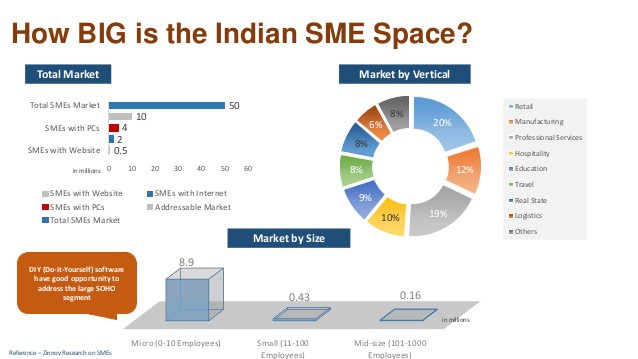Sustainable Business Growth: Funding Strategies For SMEs

Table of Contents
Traditional Funding Sources for Sustainable Growth
Traditional funding methods offer established routes to secure capital for sustainable business growth. However, it's crucial to weigh the pros and cons carefully.
Bank Loans
Bank loans remain a popular choice for SMEs seeking sustainable business growth. They offer a relatively predictable repayment schedule and potentially lower interest rates compared to other options.
-
Pros:
- Relatively low interest rates (compared to other options like venture capital).
- Established process and readily available information.
- Can be used for various purposes, including equipment purchases, expansion, and working capital.
-
Cons:
- Rigorous application process, often requiring extensive documentation and financial statements.
- Requires a strong credit history and often demands collateral, potentially putting your assets at risk.
- Approval is not guaranteed and may be subject to market conditions and bank lending policies.
Venture Capital
Venture capital (VC) firms invest in high-growth potential SMEs, often in exchange for equity. While potentially lucrative, it’s a significant commitment.
-
Pros:
- Significant capital injection for rapid expansion and scaling of operations.
- Access to valuable mentorship and expertise from experienced investors.
- Potential for strategic partnerships and industry connections.
-
Cons:
- Loss of equity in your company, potentially diluting ownership.
- High expectations for return on investment, leading to pressure for rapid growth.
- Loss of control over certain business decisions.
Angel Investors
Angel investors are high-net-worth individuals who provide early-stage funding to promising SMEs. They often offer more than just capital; their industry expertise and networks can be invaluable.
-
Pros:
- Access to mentorship and valuable industry networks.
- Potentially less stringent requirements than venture capital firms.
- Focus on long-term growth rather than short-term returns (in many cases).
-
Cons:
- Finding the right angel investor can be time-consuming and competitive.
- Potential dilution of ownership.
- May require giving up more equity than other funding options.
Alternative Funding for Sustainable Business Practices
Beyond traditional methods, several alternative funding options support sustainable business practices and environmentally conscious ventures.
Crowdfunding
Crowdfunding leverages the power of the crowd to raise capital. Platforms like Kickstarter and Indiegogo offer different models: rewards-based, equity-based, and donation-based.
-
Pros:
- Direct engagement with potential customers and valuable market validation.
- Potentially lower costs than traditional financing.
- Can build brand awareness and community around your business.
-
Cons:
- Requires significant marketing and campaign management effort.
- Success is not guaranteed and depends heavily on campaign execution and community engagement.
Government Grants and Subsidies
Many governments offer grants and subsidies to support businesses that promote sustainable business practices, environmental protection, and social responsibility.
-
Pros:
- Non-dilutive funding, meaning you don't lose equity.
- Potential for significant capital injection to support sustainable initiatives.
-
Cons:
- Highly competitive application process.
- Specific eligibility criteria and requirements that may be challenging to meet.
- May involve lengthy application processes and reporting requirements.
Impact Investing
Impact investors prioritize both financial returns and positive social and environmental impact. Their investment criteria align perfectly with sustainable business goals.
-
Pros:
- Alignment of values between investor and business.
- Potential for long-term partnerships based on shared goals.
- Enhanced reputation and brand credibility.
-
Cons:
- Finding suitable impact investors may be more challenging than securing traditional funding.
- Increased scrutiny of social and environmental performance.
Developing a Sustainable Funding Strategy
Securing funding for sustainable business growth requires a strategic approach.
Creating a Compelling Business Plan
A well-structured business plan is paramount. It should clearly articulate your business model, market analysis, financial projections, sustainability goals (ESG factors), and the planned use of funds. This is the cornerstone of attracting investment.
Building Strong Relationships with Potential Investors
Networking and relationship building are critical. Attend industry events, connect with potential investors online, and cultivate meaningful relationships with individuals and firms who align with your vision.
Demonstrating a Clear Path to Sustainable Growth
Show potential investors a clear roadmap to sustainable growth. This involves outlining specific milestones, key performance indicators (KPIs), and demonstrating how the funding will contribute to achieving your long-term objectives. This transparency builds trust and confidence.
Conclusion
Achieving sustainable business growth requires a well-defined funding strategy. By exploring traditional and alternative funding options, and by developing a strong business plan that emphasizes sustainable practices, SMEs can secure the resources needed to thrive. Carefully consider your business needs, risk tolerance, and long-term goals when choosing a funding source. Start planning your sustainable business growth strategy today! Explore the diverse options for sustainable business growth funding and pave the way for your company's long-term success.

Featured Posts
-
 Is It Starvation Or Choice Earning Less Than An A List Spouse
May 19, 2025
Is It Starvation Or Choice Earning Less Than An A List Spouse
May 19, 2025 -
 El Apoyo Ciudadano Facilita La Declaratoria Un Mensaje De Ana Paola Hall
May 19, 2025
El Apoyo Ciudadano Facilita La Declaratoria Un Mensaje De Ana Paola Hall
May 19, 2025 -
 Predicting Ufc Vegas 106 Burns Vs Morales And Key Fight Card Outcomes
May 19, 2025
Predicting Ufc Vegas 106 Burns Vs Morales And Key Fight Card Outcomes
May 19, 2025 -
 Remote Island Deportation Plan For Migrants Ignites Public Fury In France
May 19, 2025
Remote Island Deportation Plan For Migrants Ignites Public Fury In France
May 19, 2025 -
 Phillies Triple A Breakout Should They Make The Call
May 19, 2025
Phillies Triple A Breakout Should They Make The Call
May 19, 2025
